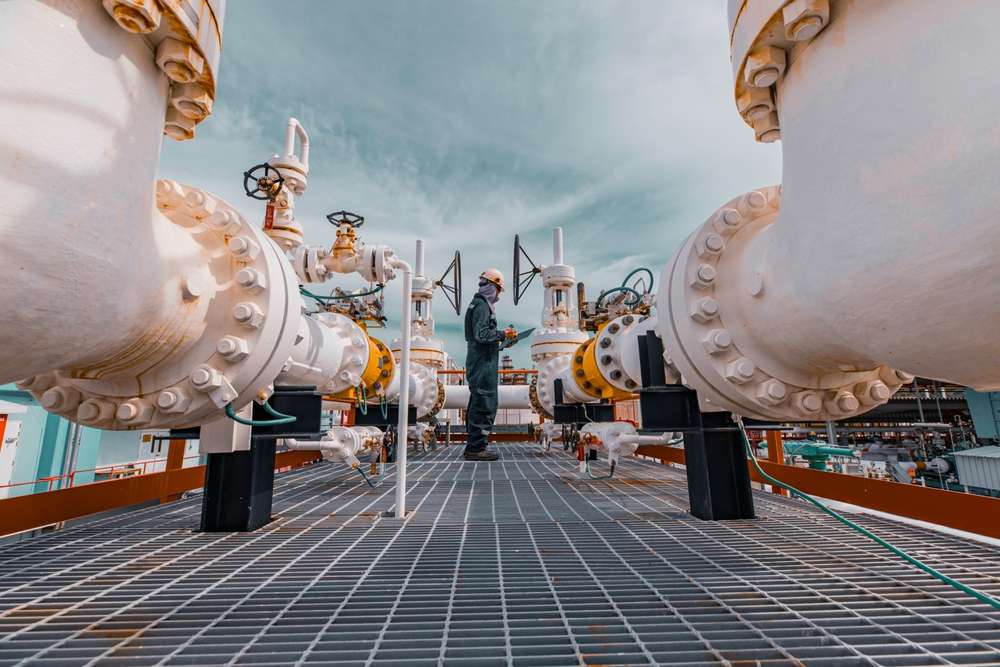Offshore Energy Careers: Navigating Life on the Rigs
Dive into the world of offshore energy careers and discover the challenges and rewards of working on oil rigs. From entry-level positions to specialized roles, explore the diverse opportunities, required skills, and unique lifestyle that come with these high-stakes jobs. Uncover the realities of life at sea and the potential for lucrative compensation in this demanding yet exciting industry.

The offshore energy sector presents a diverse array of career paths for those drawn to adventure and cutting-edge technology. This industry, centered around extracting valuable resources from beneath the ocean floor, offers a unique work environment that’s both challenging and potentially rewarding. Let’s explore the landscape of offshore energy careers, examining the roles available, necessary qualifications, and what daily life entails for those working on oil rigs.
Diverse Roles in Offshore Operations
Offshore energy facilities require a wide range of professionals to function effectively. While not an exhaustive list, here are some key positions you might encounter:
-
Entry-Level Crew: Often starting as roustabouts, these workers handle general maintenance and labor tasks, forming the backbone of rig operations.
-
Drilling Specialists: From roughnecks managing drill pipes to experienced drillers overseeing entire operations, these roles are central to the rig’s primary function.
-
Technical Experts: Positions such as mud engineers, electricians, and mechanics ensure the complex systems on board run smoothly and safely.
-
Support Staff: Medical professionals, catering crews, and administrative personnel maintain the well-being and efficiency of the offshore community.
-
Leadership Roles: Rig managers and department heads coordinate activities and ensure compliance with safety and operational standards.
Each position plays a vital role in the intricate ecosystem of an offshore facility, contributing to the overall mission of energy extraction.
Essential Skills and Qualifications
Success in offshore energy careers often hinges on a combination of technical know-how, personal attributes, and industry-specific training. Key requirements typically include:
-
Physical Resilience: The demanding nature of offshore work requires stamina and adaptability to challenging conditions.
-
Safety Mindset: A strong commitment to following and enforcing safety protocols is non-negotiable in this high-risk environment.
-
Technical Aptitude: Familiarity with mechanical, electrical, or hydraulic systems is valuable across many roles.
-
Teamwork and Communication: The ability to work effectively in close quarters with a diverse crew is essential.
-
Educational Background: While some entry-level positions may accept candidates with a high school diploma, many specialized roles require relevant degrees or vocational training.
-
Industry Certifications: Qualifications such as BOSIET (Basic Offshore Safety Induction and Emergency Training) are often mandatory.
-
Relevant Experience: Higher-level positions typically require a track record in the energy sector or related industries.
For those new to the field, apprenticeships and entry-level roles can provide a foothold and pathway to more specialized positions.
Life on the Rig: A Unique Work Environment
Working offshore presents a lifestyle distinctly different from traditional onshore employment:
-
Extended Rotations: Typical schedules involve prolonged periods on the rig (e.g., two weeks) followed by equal time off.
-
Confined Living: During shifts, the rig becomes home, with provided accommodations and amenities.
-
Social Dynamics: The isolated nature of the work can foster strong bonds among colleagues but may also challenge those who struggle with being away from family and friends.
-
Rigorous Safety Culture: Daily life includes regular safety drills and strict adherence to protocols.
-
Limited Personal Space: Shared living quarters and communal areas are the norm.
-
Environmental Challenges: Workers must be prepared for various weather conditions and the unique demands of a marine environment.
-
Restricted Connectivity: Internet and phone access may be limited while at sea.
Despite these challenges, many find the offshore lifestyle rewarding, appreciating the unique experiences, potential for high earnings, and extended off periods between rotations.
Compensation and Benefits: Understanding the Package
Offshore energy careers are known for competitive remuneration, though it’s important to note that salaries can vary widely based on factors such as position, experience, location, and market conditions. Here’s a general overview of potential salary ranges for common offshore roles:
| Position | Entry-Level Range | Experienced Range |
|---|---|---|
| Support Crew | $45,000 - $65,000 | $65,000 - $85,000 |
| Technical Specialists | $60,000 - $90,000 | $90,000 - $130,000 |
| Senior Operators | $85,000 - $130,000 | $130,000 - $200,000+ |
| Management | $110,000 - $160,000 | $160,000 - $250,000+ |
Note: These figures are estimates and may not reflect current market rates. Independent research is advised for the most up-to-date information.
Beyond base salaries, offshore workers often enjoy comprehensive benefits packages that may include:
- Health and life insurance
- Retirement savings plans
- Extended paid time off during off-rotation periods
- Coverage of travel and accommodation expenses
- Opportunities for overtime pay
- Professional development and training programs
The combination of potentially high earnings and extensive benefits makes offshore energy careers financially attractive to many, despite the challenges of the work environment.
Conclusion: Weighing the Opportunities
Careers in offshore energy offer a unique blend of challenges and rewards. For those willing to embrace the demands of offshore life, these roles can provide financial stability, professional growth, and unparalleled experiences. As the global energy landscape continues to evolve, the offshore sector remains a critical component in meeting worldwide energy demands, suggesting ongoing opportunities in this dynamic field.
However, it’s crucial for prospective offshore workers to carefully consider the lifestyle implications and challenges alongside the potential benefits. Success in this industry often requires not just technical skills and physical resilience, but also the ability to thrive in a unique and demanding work environment.
For those intrigued by the prospects of offshore energy careers, thorough research, networking with industry professionals, and possibly starting with entry-level positions or internships can provide valuable insights and pathways into this exciting field.






